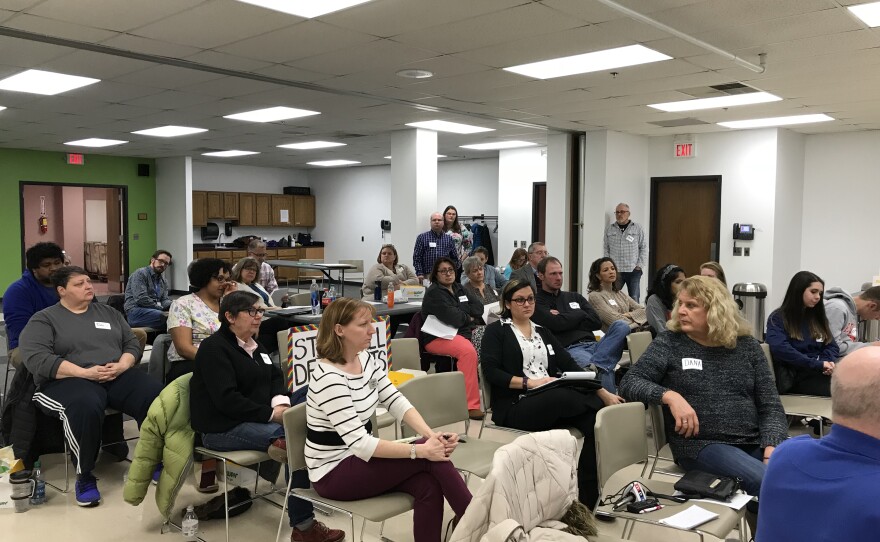An organization working to halt the spread of HIV in Illinois wants to have the difficult conversations behind treating the disease.
Illinois Getting To Zero (GTZ) held a town hall at the Normal Public Library on Thursday with the McLean County Health Department. Similar organizations in Washington, Texas, Arizona and New York inspired GTZ's kickstart in July 2016. The organization is based at the AIDS Foundation in Chicago.
Chris Wade, an HIV project coordinator with the Illinois Public Health Association in Springfield, has been living with HIV for 25 years. He said he chooses to be open about his condition to end the stigma and put a face on it.
"It also proves to people that people are living healthy lives on medications," Wade said. "It wasn't until about three or four years ago that I started taking them. I've been virally suppressed ever since. If you are virally suppressed you will not be able to spread the disease to your partners whether you have unprotected sex or not."
Wade said there are doctors unaware of medications available to bring lower virus counts below detectable levels in patients.
Folks that are HIV negative can also take medication to block transmission from an HIV positive partner. GTZ Project Manager Sara Smelka said PReP (Pre-exposure prophylaxis) is a pill and program that is 99 percent effective at preventing HIV when taken consistently and correctly. She said 10 to 20 percent of people who need the medication are not taking it, and the most HIV-vulnerable populations (black gay men, trans women of color, black women) aren't aware of or taking PReP. The medication is available through Medicaid and alternate programs dedicated to providing affordable medication to those in need.
McLean County Health Department staff say they welcome members of the LGBTQ community for HIV treatment. Communicable Disease Supervisor Melissa Graven said the virus that causes AIDS disproportionately affects the transgendered community.
Graven said the health department has experience in treating trans patients but offers outside options if they aren't comfortable.
"We may not be able to provide all their medical needs, but we can certainly talk to them about maybe finding a healthcare provider that is trans-sensitive, or sensitive to their health issues they have as a trans individual wherever they are in the spectrum of trans," she said.
Graven said the McLean County Health Department is a safe place for trans people.
Illinois Getting To Zero hopes the state will have fewer than 100 new HIV cases by the year 2027.
The group is hosting six more town hall meetings in Illinois this month:
- Jan. 23, Waukegan Public Library, 5-7:30 p.m.
- Jan. 25, Simmons Cancer Institute at SIU School of Medicine, Springfield, 12-2 p.m.
- Jan. 26, Champaign-Urbana Public Health District, Champaign, 9:30 a.m.-noon
- Jan. 27, Moline Public Library, 12-2 p.m.
- Jan. 30, Carbondale Civic Center, 5:30-7:30 p.m.
- Jan. 31, Doubletree Hotel, Collinsville, 2-4 p.m.
WGLT depends on financial support from users to bring you stories and interviews like this one. As someone who values experienced, knowledgeable, and award-winning journalists covering meaningful stories in central Illinois, please consider making a contribution.



